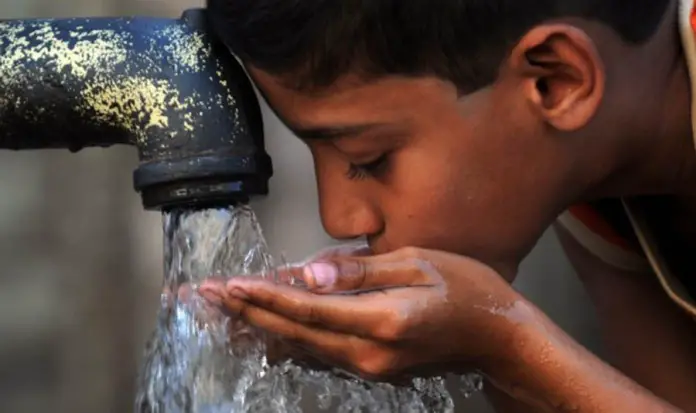Amidst the worst water crisis, the coastal population of district Thatta has been hit hard by an outbreak of gastroenteritis and cholera, Minute Mirror learnt on Sunday.
A large population of Ghorabari taluka of district Thatta, including women and children, has been afflicted with gastroenteritis and cholera and has been shifted to different public and private hospitals in the district.
Unhygienic conditions, consumption of contaminated and arsenic water, and lack of awareness have led to the rapid spread of stomach-related diseases in the coastal areas. According to a survey conducted by Minute Mirror, Ketibunder, Ghorabari, and remote areas of Var were the most affected by gastrointestinal ailments. None of the concerned authorities have taken measures to curb its spread.
The poor population of these areas has no sufficient resources to spend on treatment of such diseases that can prove fatal if not cured on time.
Sources revealed that private clinics in the coastal areas were also brimming with patients with gastroenteritis; they were being treated either by untrained medical practitioners or undergraduate medical students.
The residents of the troubled areas told Minute Mirror that the government hospitals of the coastal areas – including rural health centres of Mirpursakro, Var, and Ketibunder – lacked medicine and other facilities to meet the needs of patients arriving there for treatment. They complained that no required measures had been taken by the district health department, and the People’s Primary Healthcare Initiative (PPHI), that administered the hospitals in these areas, also failed to tackle the current situation.
A medical superintendent of a rural health centre Dr. Sajid Hussain Sheikh revealed that as many as 650 patients infected by gastro and cholera had been treated under his surveillance. He added that the number of patients might be staggeringly high as people of low lying areas usually ignored these diseases at the initial stage.
“The children and women brought here so far were in critical condition, but we managed to save them by providing required treatment,” he said. He further mentioned that malnutrition had weakened the immunity of the children and women of the coastal areas, highlighting that it was one of the key reasons for this outbreak.
Social activist Qisar Chandio said that the outbreak of such diseases was directly connected to the acute shortage of water, warning that the situation may deteriorate further. According to reports from Mirpursakro, three children have succumbed to gastro during the past 15 days in different areas of the taluka.







